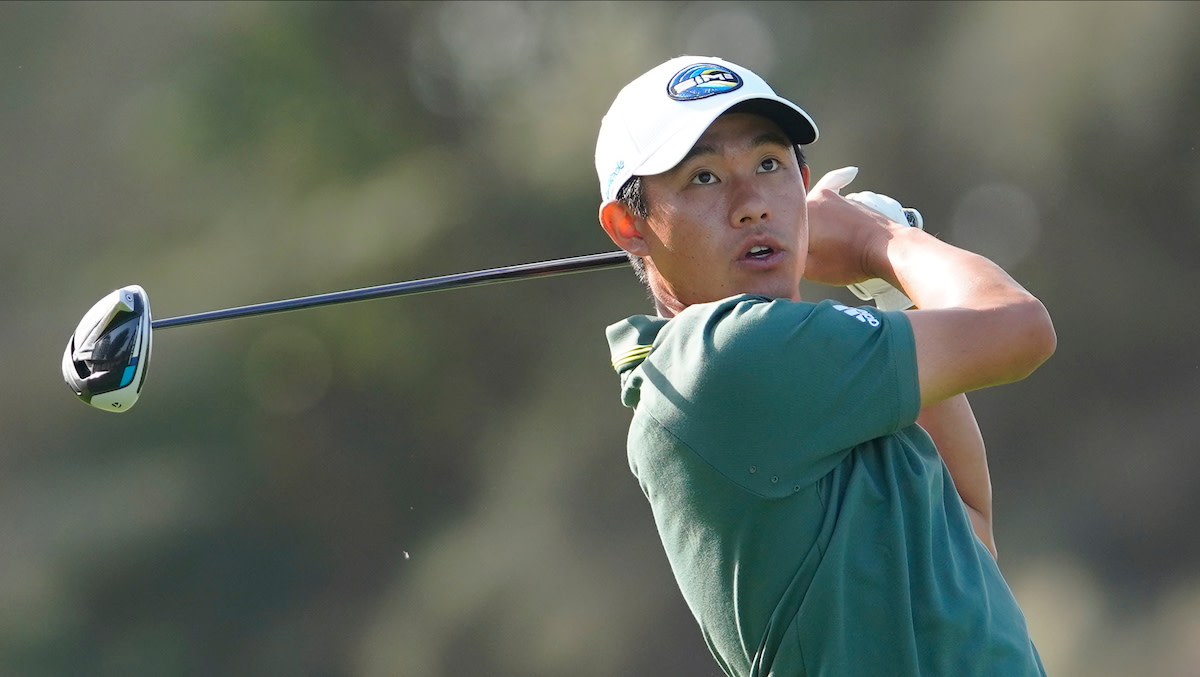
Future arrives for U.S. Ryder Cup team
Few final leaderboards have told time to greater effect than the marquee at last month’s WGC gathering in Florida, where three of the top five spots were occupied by players 24 or younger. This was the strongest field at a PGA Tour event since last year’s Masters, which provided only an additional layer of distinction to Collin Morikawa’s fourth career victory.
Morikawa took a two-stroke lead into Sunday and spent the entire afternoon dealing with four major champions – all 12th or higher in the Official World Golf Ranking – chewing on his pant legs. Morikawa would win by three, displaying levels of skill and poise far beyond his years while reinforcing the notion that the game’s future has already arrived.
It also means wholesale changes to the composition of the U.S. Ryder Cup squad, which almost surely will include Morikawa (currently fourth in the standings) in addition to Daniel Berger (10th), Patrick Cantlay (11th) and perhaps Matthew Wolff (14th) when the Yanks host Europe at Whistling Straits this fall. There might also be room for Scottie Scheffler (21st), who climbed to 30th in the OWGR after a solo fifth at the WGC.
All five of those guys are under 30. Not one of them has an ounce of Ryder Cup experience, which could be the ultimate blessing in disguise after watching basically the same nucleus of Americans get shellacked by the Euros for two decades. Since the heroic comeback at Brookline in 1999, Uncle Sam has lost seven of nine, four of them by five points or more. The scoring differential over that stretch is 138-114.
Both U.S. triumphs in the 21st century (2008, 2016) have occurred without Tiger Woods, whose only contributions to a winning team came in ’99. Woods, Phil Mickelson and Jim Furyk compiled a career record of 41-63-14 in 29 total appearances, meaning America’s three biggest guns barely won one-third of their matches. Three crucial members of the supporting cast – Bubba Watson, Matt Kuchar and Rickie Fowler – each played in four Ryder Cups. They combined for just 16½ points in 44 sessions.
Dustin Johnson, Patrick Reed and Zach Johnson are the only Americans with a winning record in 10 or more matches since 2002, which happens to be the last time the Ryder Cup was postponed. This time, the delay appears to have worked in Old Glory’s favor, as Morikawa and Wolff, in particular, have advanced themselves considerably since the COVID-19 suspension ended last June. Woods and Mickelson are no longer in the picture in terms of earning a captain’s pick from Steve Stricker.
Neither Watson nor Kuchar has done anything to merit serious consideration. Fowler, meanwhile, has fallen off the map: zero top-10s in 20 starts during the past 12 months. It all adds up to a very obvious transition year in the Ryder Cup context. Stricker can’t follow the beaten path of previous U.S. skippers and add a few battle-scarred veterans to the roster, because nobody’s even getting into contention on the weekend, much less winning.
That presents some interesting possibilities in terms of Stricker’s six at-large selections. Perhaps the most intriguing is Kevin Na, who has won three times in less than two years but is still 19th among automatic qualifiers. Go ahead and laugh, but Na drives it ultra-straight and putts it great, making him ideal for foursomes, the format that killed the U.S. 2½ years ago in France.
Bombers are a dime a dozen nowadays. Na is a situational golfer, a guy whose lack of power makes him competitively irrelevant at a majority of Tour events – any place where length is a necessity. If you need somebody to hole a 20-footer on the 16th green, however, he’s a pretty good guy to have around.
As it stands now, the top six U.S. qualifiers have played in a total of eight Ryder Cups – four fewer than Mickelson by himself. You don’t think experience is overrated? Lefty went 3-0 in his 1995 debut and would lose just twice in his first 13 tilts, which makes his 18-22-7 career mark all the more astonishing. One could reason that because Ryder Cup pressure is so intense, no abundance of previous encounters can prepare a man such an atmosphere.
Come to think of it, you actually might be better off to show up young, dumb and ready to rumble.
Stricker is likely to have at least five Ryder Cup rookies on his squad, an unusually high number for a U.S. team characterized by familiar faces. Europe had five when it crushed the Yanks in 2018, six when it held on to beat the Americans in 2010. That year, Corey Pavin heard some static for using a captain’s selection on Rickie Fowler, who hadn’t even been on the PGA Tour for a year.
So much for conventional wisdom. Fowler birdied the final three holes in his singles match versus Edoardo Molinari to earn a must-have halve, although the Euros would prevail by a point. These days, Fowler is a floundering veteran in a world full of fully prepared hotshots, kids who drive it 350 yards without a care and act like they belong from the moment they set foot on the Tour.
Some of them do. Things are different now, and Captain Stricker would do well to acknowledge it.
Sign up to receive the Morning Read newsletter, along with Where To Golf Next and The Equipment Insider.